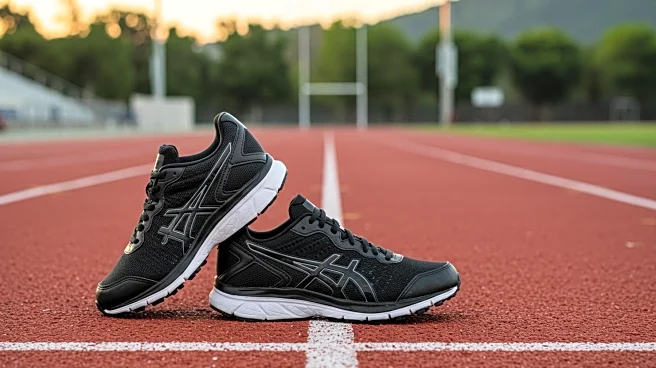What's Happening?
A recent study conducted by Dr. Jason Moran at the University of Essex, in collaboration with Tottenham Hotspur's academy, has demonstrated that simple, environment-focused word cues can significantly improve sprint speed in young athletes. The research involved 20 academy players aged 14 to 15, who completed repeated 22-yard sprints after receiving different types of verbal instructions. The study found that external focus cues, which direct attention to the environment rather than the athlete's body, resulted in faster sprint times compared to internal focus cues. This approach is believed to ease cognitive load, allowing the nervous system to manage coordination more efficiently. The findings suggest that external cues can enhance performance and learning across various sports and tasks.
Why It's Important?
The implications of this study are significant for sports coaching and athlete development. By utilizing external focus cues, coaches can potentially improve the performance of athletes without the need for extensive physical training. This method offers a low-cost, immediate impact on sprint speed, which is crucial in competitive sports where fractions of a second can determine outcomes. The study highlights the importance of cognitive strategies in sports training, suggesting that mental focus can be as critical as physical conditioning. This approach could benefit athletes at various levels, from youth sports to professional settings, by optimizing training efficiency and enhancing competitive performance.
What's Next?
The study opens avenues for further research into the application of external focus cues in different sports and age groups. Coaches and sports psychologists may explore how these cues can be integrated into training programs to maximize their benefits. Additionally, the findings could lead to the development of new coaching techniques that prioritize cognitive strategies alongside physical training. As the sports industry continues to evolve, incorporating mental focus into training regimens could become a standard practice, potentially transforming how athletes prepare for competition.
Beyond the Headlines
The study also raises questions about the role of cognitive load in athletic performance and how it can be managed effectively. The use of external focus cues may not only improve immediate performance but also contribute to long-term skill retention and transfer. This approach could redefine traditional coaching methods, emphasizing the importance of mental strategies in achieving athletic success. Furthermore, the study suggests that the effectiveness of cues may vary based on individual differences, such as age, experience, and training history, indicating a need for personalized coaching techniques.










